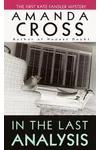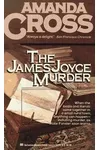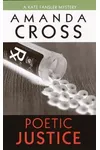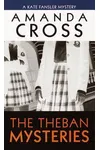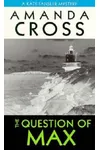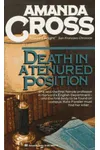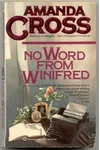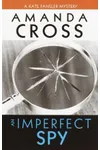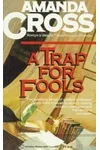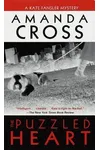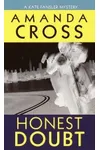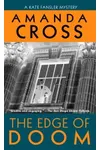Step into the erudite and enigmatic world of Kate Fansler, where sharp-witted literary analysis meets gripping murder mysteries! The Kate Fansler series, penned by Carolyn Gold Heilbrun under the pseudonym Amanda Cross, follows a charismatic English literature professor turned amateur sleuth. From 1964 to 2002, these 15 novels captivated readers with their blend of academic intrigue, feminist insight, and classic whodunit charm, all set against the backdrop of New York’s elite universities.
Kate Fansler isn’t your typical detective. Armed with a sharp intellect and a penchant for witty banter, she unravels mysteries through probing conversations rather than daring chases, offering a refreshing take on the mystery genre. For fans of cozy mysteries with a cerebral twist, this series is a hidden gem waiting to be discovered.
How Kate Fansler Began
In the 1960s, Carolyn Heilbrun, a trailblazing Columbia University professor, created Kate Fansler as a fictional counterpart to her own academic life. Writing as Amanda Cross to protect her tenure, Heilbrun infused her novels with her experiences as a feminist navigating a male-dominated academia. Inspired by Dorothy Sayers’ Gaudy Night, she crafted a sleuth who solved crimes with literary acumen, launching the series with In the Last Analysis in 1964, which earned an Edgar Award nomination.
Heilbrun’s pseudonym was a shield until a fan uncovered her identity via copyright records, but by then, her tenure was secure. The series became a creative outlet for Heilbrun to explore feminist themes and critique academic politics, all while spinning captivating mysteries that resonated with readers worldwide.
The Heart of Kate Fansler
The Kate Fansler series spans 15 novels, each weaving literary references with intricate mysteries. In the Last Analysis (1964) introduces Kate as she investigates a student’s murder on a psychoanalyst’s couch, using D.H. Lawrence’s works to crack the case. Death in a Tenured Position (1981), a Nero Award winner, tackles misogyny at Harvard, with Kate probing the death of a female professor in a male-dominated department. Sweet Death, Kind Death (1984) explores aging and rebirth as Kate uncovers a historian’s murder disguised as suicide. The Edge of Doom (2002), the final novel, delves into Kate’s personal history, tying her independent spirit to a surprising family revelation.
Set in the hallowed halls of academia, the series is rich with feminist themes, dissecting gender dynamics, power struggles, and women’s roles in society. Kate’s investigations often expose misogyny and patriarchal structures, reflecting Heilbrun’s own battles at Columbia. Her conversational sleuthing style, laced with literary allusions and sardonic wit, evokes the intellectual repartee of George Bernard Shaw or Oscar Wilde. The cozy yet incisive tone makes these mysteries both comforting and thought-provoking.
Kate’s partnership with district attorney Reed Amhearst, whom she marries mid-series but never fully conforms to, adds depth to her character. Her rejection of traditional roles—eschewing children and embracing smoking and scotch—mirrors Heilbrun’s feminist ethos, making Kate a bold, unconventional heroine for her time.
Why Kate Fansler Resonates
The Kate Fansler series left an indelible mark on the mystery genre, blending intellectual rigor with feminist critique. Heilbrun’s novels, translated into multiple languages and selling nearly a million copies worldwide, offered a prescient exploration of issues like workplace sexism and women’s autonomy, resonating with readers long before the #MeToo era. The series’ academic setting and literary depth inspired later authors to craft cerebral, character-driven mysteries.
Today, Kate Fansler remains a beacon for readers who crave smart, socially aware storytelling. Her legacy endures in the cozy mystery subgenre, where wit and wisdom trump violence, and her feminist lens continues to inspire discussions on gender and power in literature.
- Publication Years: 1964–2002
- Number of Books: 15
- Notable Awards: Edgar Award nomination (1965), Nero Award (1981)
Grab In the Last Analysis and dive into Kate Fansler’s world of literary sleuthing and feminist flair—your next cozy mystery obsession awaits!
